The World Abaza Congress summed up the results of the work for 2020.
The Chairman of the Supreme Council of the WAC Mussa Ekzekov told about how, despite the limitations of the pandemic, the Congress worked in 2020.
Mussa Ekzekov recalled that the main task before the team of the Congress is "to know how each Abkhazian and Abaza family lives" in order to jointly resolve the issues that will raise the standard of living of the population.
"We have achieved good results in the Abaza villages of Karachay-Cherkessia, where, on the basis of the ANO "Alashara" model, work has been carried out for eight years in almost all spheres of human activity," Ekzekov explained.
The Congress will have the same working approach in 2021. It is planned to open at least fifty new local branches on the territory of Abkhazia. The head of the WAC SC said that the WAC will continue to work continuously to optimize all available resources to achieve the most effective results.
"I am confident that thanks to our sincere love for our place of residence, we will be able to create even more effectively for the benefit of society," he said.
According to the Chairman of the WAC SC, in general, in 2020, many socially useful events and charitable actions were implemented. Of course, these are the "Ashtra" and "Amazara" projects, the celebration of the Day of State Symbols of the Republic of Abkhazia, this is active work within the framework of the WAC Discussion club.
"We pay special attention to the preservation and development of our native language. Together with experts, we developed and released a number of teaching aids for studying the Abaza language, video lessons, translated popular cartoons, helped launch the first private Abaza kindergarten, wrote new songs in the Abkhazian and Abaza languages, and are shooting a film in the Abaza language. Within the framework of the Discussion club, we organized children's courses for studying the Abkhazian language according to a new method," Mussa Ekzekov listed.
He noted that over the past 2020, due to objective reasons, the WAC was unable to fulfill the approved plan for trips abroad and, accordingly, the plan for opening new regional offices.
Nevertheless, a working trip was made to Syria in order to study the prospects of opening a regional branch and prepare for signing an agreement with the Circassian charitable organization of Syria. Ekzekov added that the opening of regional offices in the countries of presence of the Abkhaz-Abaza Diaspora will remain one of the priority areas in the new year, 2021.
"Love for our people, which for me is one big family, a sense of responsibility for the fate of every person, every child, the hopes of our ancestors that need to be realized, the trust of the Almighty inspire me to implement this special mission. I am for the revival of the Abaza ethnic group, for the inviolability of our culture and traditions, for the development of the language, for the triumph of love and goodness, for the bright future of Apsny and Russia," he concluded.
WAC works actively in the villages
The Executive Secretary of the WAC, Inar Gitsba, in his turn, said that one of the main activities of the World Abaza Congress in 2020 was the implementation of the instructions of the Chairman of the Supreme Council to continue the process of opening local branches in the settlements of Abkhazia. According to Gitsba, the main goal of creating local branches is to contribute to the formation of an active stratum of the population in the field, taking part in the life of the village and contributing to the improvement of the quality of life.
"Thus, the Congress seeks to help people understand that everyone at their own level can be of benefit. First of all in my yard, then on my street, and then in my village. If we can unite as many people as possible in a determined intention to create, we will say that the goal has been achieved," Inar Gitsba said.
The Executive Secretary of the WAC believes that in order to implement a project, to solve a particular pressing task, it is necessary, first of all, "not to be indifferent and not to expect that someone else will relieve you of this problem, one has to take the initiative and unite like-minded people".
He drew attention to the fact that in addition to the problems - and they are similar for almost every settlement and district - it is important to understand the potential. You need to start with small projects, moving on to more complex ones.
"Guided by this "philosophy", today we have already established 31 local branches in the Republic. Another 8 have been opened in the Republic of Turkey in the regions of compact residence of the Abkhaz-Abaza Diaspora. Active work is underway in these structural units of the WAC. It is obvious that the restrictions associated with the spread of the new coronavirus infection have made adjustments to the plans for the development of this area. Nevertheless, the work did not stop," said Inar Gitsba.
2020 projects
The head of the Women's Councils of the Congress, Geta Ardzinba, spoke in more detail about the projects of the WAC implemented in 2020. She noted that as part of the WAC's project activities aimed at enhancing the work of local councils, initiatives were implemented in the villages of Baslakhu Pakuashch, Atara, Chlou, Uarcha, Dranda.
With the support of partners, the Congress helped a young family of a teacher from a rural school in the village of Baslakhu build a house. A series of psychology trainings were conducted for teachers of rural schools in Chlou and Uarcha.
Geta Ardzinba noted that as part of the work to activate local councils, traditional children's holidays were also held, but not in the capital, but in the villages of the Ochamchira district; Atara, Pakuash, Akuaskia, Baslakhu, Guada. Ardzinba added that the Congress was supported by partners here as well.
On May 21, the World Abaza Congress held a memory action "Ashamaka" - lighting a ritual commemorative candle of ashamaka. July 23 initiated the celebration of the Day of the State Flag of the Republic of Abkhazia. The WAC also launched a new "Amazara" project. A project was launched jointly with the "Amch" organization, within the framework of which schoolchildren from Abkhazian villages visited various sights of Abkhazia.
"All projects are aimed at involving a large number of participants, so that in the course of the projects as many people as possible learn about the ideas of the WAC, get involved in solving the problems of the Congress. However, of course, the main medium term task is to bring the work of local branches to the level of independently operating units. To do this, we planned the project activities in such a way that the "engine of the Congress" would not stop and the local offices would be the "circulatory system" of the WAC," said Geta Ardzinba.
Financial results
The results of the work of the Congress apparatus were summed up by its chief Kan Tania.
He noted that the apparatus of the WAC is a structural unit that ensures the statutory activities of the organization and the fulfillment of instructions from the Chairman of the WAC SC. Particular attention in the work of the apparatus is paid to the coordination of the work of Regional and Local branches of the Congress around the world.
Tania recalled that the apparatus prepares annual plans for the Congress, submits them for approval to the Chairman of the WAC Supreme Council and monitors their implementation, forms annual financial and other reports, arranges meetings and events with the participation of the Chairman, works with citizens' appeals to the Chairman and solves any other problems on behalf of the Chairman.
"The Congress is financed by donations from individuals. In 2020, donations came only from the Chairman of the Supreme Council of the Congress Mussa Ekzekov in the amount of 13,312,400 rubles. In 2019 significant assistance to the organization was provided by the Head of the Moscow Abkhazian Diaspora, a member of the Supreme Council of the WAC, Beslan Agrba, and small amounts in the form of membership fees were also transferred to the account of the Congress," said the chief of staff.
Kan Tania noted that 6,549,000 rubles were spent on the salaries of employees, including the maintenance of the Office in St. Petersburg, the cost of maintaining the Information Portal for the past period amounted to 5,063,000 rubles, for the implementation of social projects - 762,400 rubles, for current expenses - 600,000 rubles. Business and international travel expenses amounted to 227,000 rubles, information and souvenirs - 111,000 rubles.
Worldwide broadcasting
Summing up the results of the work of the Information Portal of the World Abaza Congress, the publishing editor of the information portal Izolda Khagba noted that the geography of the website visitors is expanding every year.
"Internet users from 155 countries consistently read our news. This, of course, is due to the fact that we broadcast in six languages, which means that people around the world have the opportunity to directly receive information about Abkhazia. We have the opportunity to tell firsthand about our culture, history, outstanding figures who have left their mark not only in the history of their people, of whom we are rightfully proud. It is gratifying to note that the number of views of our materials is increasing from year to year, and all language versions are equally interesting to readers," said Khagba.
According to her, in 2020, the work of the WAC Infoportal was carried out "as usual."
"The situation with the coronavirus pandemic has made great changes in the life of the whole world, and Abkhazia, in particular. The restrictions imposed also affected the work of the Congress. At the request of our foreign Diaspora, we inform visitors about the situation with coronavirus infection in Abkhazia on our website to this day. Despite the limitations, the WAC team managed to implement many projects. The Information Portal reflected each event. Thus, 155 publications were published on the website, which were translated into five languages. This is 930 publications per year. It should be noted that even remotely, it turned out to be possible to promote such a project as "Amazara" on Internet resources (project on intangible heritage - ed.). It was created for online users mainly. The idea has justified itself. Thanks to the website and social networks accounts, the videos of the project are spreading every day and catch the eye of a wide audience around the world. In total, more than a hundred thousand people have already seen each of the videos released," summed up Izolda Khagba.
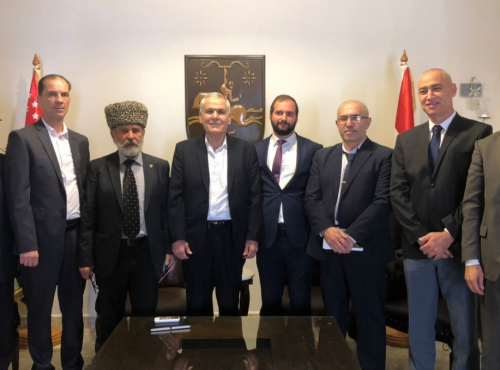
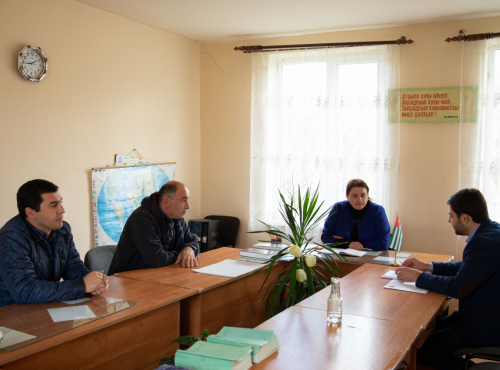
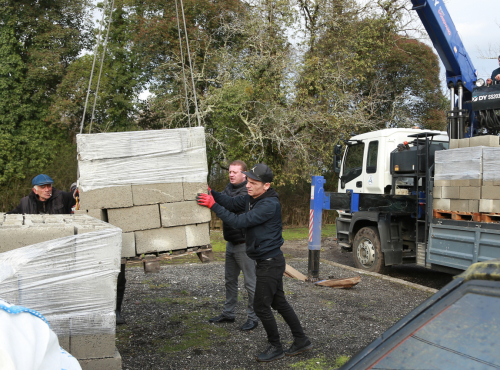
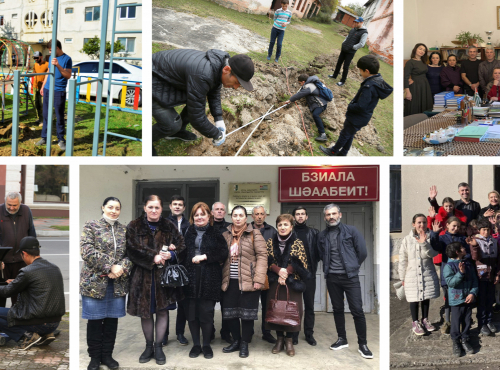
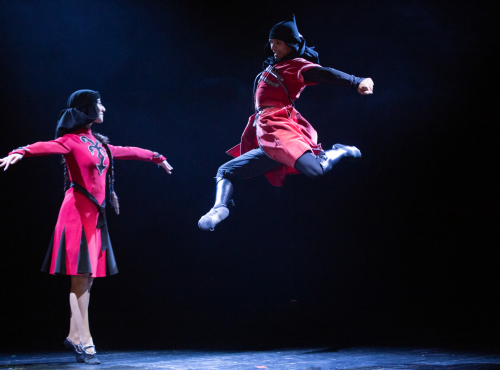
to login or register.